Resources
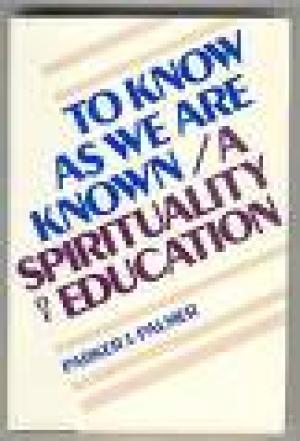
This primer on authentic education explores how mind and heart can work together in the learning process. Moving beyond the bankruptcy of our current model of education, Parker Palmer finds the soul of education through a lifelong cultivation of the wisdom each of us possesses and can share to benefit others. (From the Publisher)
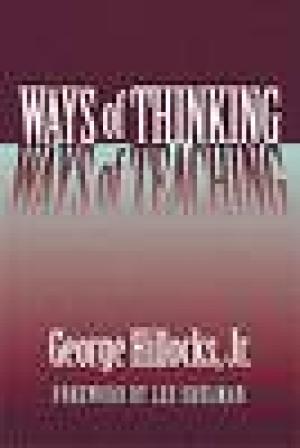
Ways of Thinking, Ways of Teaching presents a new model of teacher thinking and action–one that explains teacher decisions about what and how to teach. Combining qualitative and quantitative data drawn from observations and interviews with urban teachers of writing, George Hillocks argues that teacher knowledge is not simply transferred from some source to the teacher. Rather, it is constructed on the basis of assumptions about epistemology, students, and subject matter. The fact of this construction helps to explain why teacher education has had so little effect on changing the classroom behavior of teachers from one generation to the next. Unlike other research on teacher thinking, this book examines what actually happens in composition classrooms, presenting large chunks of representative transcripts for analysis. (From the Publisher)
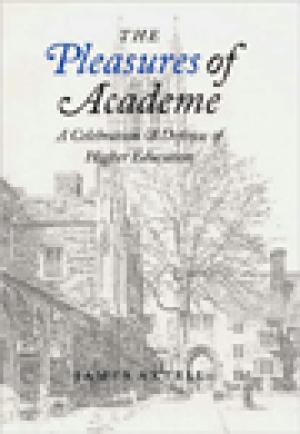
In this book, the distinguished historian James Axtell offers a compelling defense of higher education. Drawing on national statistics, broad-ranging scholarship, and delightful anecdotes, Axtell reminds us of the dedication of professors and the increasing demands placed on them. He describes the professional work cycle, the evolution of scholarship in the past three decades, the importance of "habitual scholarship," and the best ways to judge a university. He discusses, with imagination and wit, the many pleasures of academic life, including intercollegiate sports, the "benign pathology" of loving and collecting books, teaching and service outside the classroom, life in college towns, and working vacations. Axtell persuasively confronts the major critics of higher education, arguing that they have perpetuated misunderstandings of tenure, research, teaching, curricular change, and professional politics. (From the Publisher)
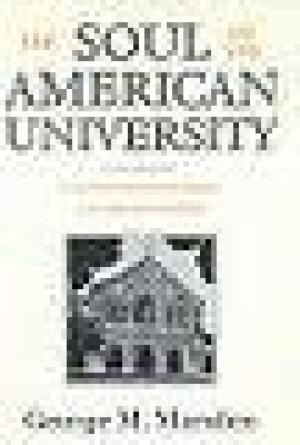
In this bold reexamination of the role of religion in higher education, Marsden provides a fascinating look at the histories of many pacesetting universities, including Harvard, Yale, and the University of California at Berkeley. The author argues for a new place for traditional religious perspectives in American universities. (From the Publisher)
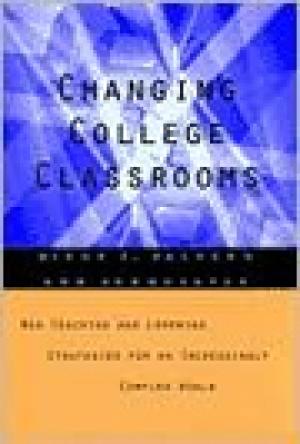
"This book is an exciting and highly useful addition to the literature on higher education and teaching. It provides concrete information and suggestions for the improvement of teaching, student learning, and the whole educational process" - from the foreword by Lee R. Kershner, former Senior Vice Chancellor for Academic Affairs, California State University System (CSU), and Jacquelyn Ann K. Kegley, co-chair, Advisory Board. CSU Institute for Teaching and Learning. Providing college students with the knowledge, skills, and abilities that will prepare them for today's complex world demands a major transformation in college classrooms - from passive to active learning, from traditional textbooks to hands-on use of technology, from restrictive ways of thinking to diverse multicultural perspectives. This book combines a range of promising instructional strategies with helpful guidelines for assessing the effectiveness of instruction. It will help faculty and administrators equip students with the creative, critical, technological, and problem-solving skills - as well as a coherent sense of multicultural awareness - necessary to thrive in a rapidly changing society. (From the Publisher)
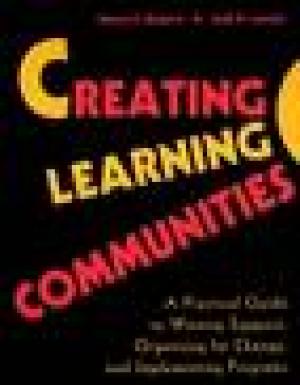
In recent years, learning communities - a curricular instructional innovation that integrates different facets of the undergraduate experience to enhance and enrich learning - have become the most promising new strategy for promoting student success and satisfaction in college. Learning communities give students the chance to deepen and diversify their education, connect with others who share their interests, and actively participate in the educational process.. "Creating Learning Communities is a guide to the essentials of this rewarding new program area, including how to design, fund, staff, manage, and integrate learning communities into different campuses. Drawing from their own experience, as well as from experiences of campuses around the country, Nancy S. Shapiro and Jodi H. Levine provide both a sound theoretical rationale and nuts-and-bolts advice on the logistical, administrative, financial, and turf-related issues of creating an effective learning community. And perhaps most important, they show how to ensure that such communities embody and fulfill the objectives for which they were established. (From the Publisher)

Each selected essay is introduced by its original author who updates the chapter topic. Drawing on examples from their own experiences, the authors provide practical classroom strategies such as readings and resources, writing assignments, classroom exercises, and guidance for using journals, multimedia workshops, and new technologies. (From the Publisher)

Most six-year-olds can't wait to go to school on that first day in September. It's a sign of coming of age. They get to go to school like the big kids. For an alarmingly large number of these children, however, boredom, anxiety, and fear of learning quickly set in. This happens because societies build schools that achieve much less than they promise, are frustrating for students, and generally fail to help children become adults who can think for themselves. The development of flexible, inquiring minds has rarely been the primary consideration in the design of educational systems. Making students into proper members of society has usually been of much greater concern than developing students who are creative thinkers. Today's schools are organized around yesterday's ideas, needs, and resources. The purpose of this volume is to raise consciousness about the changes needed in the educational system. It is concerned with what is wrong with the educational system and how to improve it. It presents a pragmatic view of what education could be through the use of computer technology — technology permitting us to pursue the radical notion that children must be allowed to guide their own education because interested learners learn more. Children can and will become voracious learners if they are in charge of their own education. This does not mean letting them play video games all day, but it does mean allowing them to pursue the intellectual goals that interest them, rather than being force-fed knowledge according to someone else's schedule. The school system must face the responsibility of creating learning environments that are so much fun that children cannot wait to get up in the morning and go to school. This volume describes the progress being made at The Institute for the Learning Sciences using computers to provide motivating environments for learning — environments that enable students to explore new worlds, and learn things by doing them. This technology will allow society to support what is one of the most important parts of a good educational system: the cultivation of individual initiative in students. This text documents the authors' work from the cognitive psychology which underlies it on through to guided tours of a number of the software learning environments they've developed. (From the Publisher)
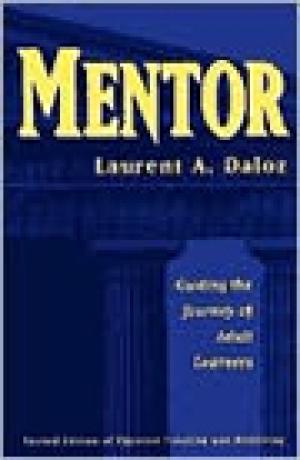
Drawing on the myth of Mentor as companion and advisor to Odysseus, preeminent educational mentoring expert Laurent A. Daloz uses the metaphor of the mythic journey as a way of making sense of life's changes. He looks closely at what good teachers and mentors actually do, and inspires post-secondary educators to think of their work in fresh new ways. This classic, beautifully written work has been newly updated and is available for the first time in paperback. (From the Publisher)

This is a collection of case studies written by professor and by graduate students teaching in the field of religion. Each case highlights one or more teaching problem (or possibility), some facet of the mystery of teaching (and learning to teach) at the college level. Each case is intended to spark conversations about a particular collegiate teaching situation. (From the Publisher)